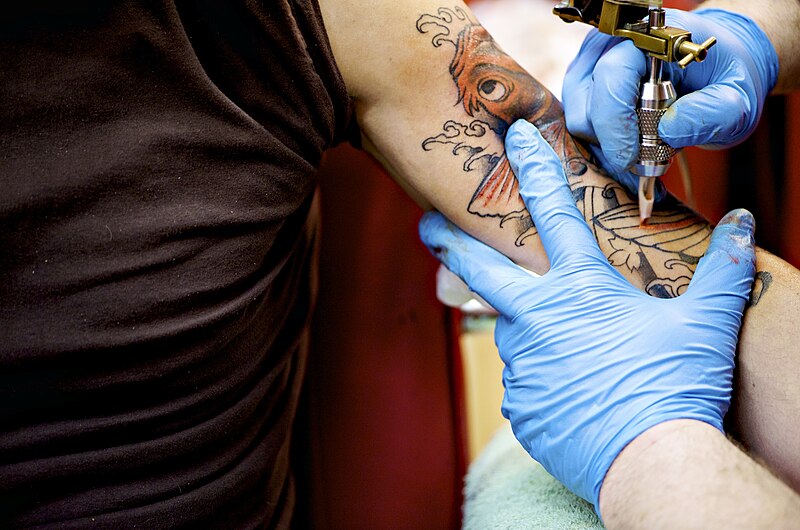STRICTER regulations of tattooists are being introduced, nearly 10 years after poor practices at a Newport studio named Flesh Wound left customers suffering serious skin infections.
The outbreak of pseudomonas – a bacterial blood infection – was traced to the tattoo and body piercing studio in the city. Four customers who had piercings were so seriously affected they required surgery, and in some cases reconstruction.
Almost 850 people – many of them teenagers and the youngest just 11 – were tested for hepatitis B and C, as well as HIV, in 2015 as a result of the outbreak, that cost the NHS £240,000, and was sparked by poor hygiene practices at the Commercial Street business that was a different times called Blue Voodoo, Sun Tattoo Studio and Flesh Wound.
The law at the time meant the studio’s owner could only be banned from wielding his potentially fatal needles and instruments commercially again in Newport.
A new mandatory licensing scheme, which it is expected will come into force next year, is intended to tighten regulation of what are known as special procedures, such as acupuncture, tattooing (including semi-permanent makeup such as microblading), skin piercing and electrolysis by introducing national standards across Wales.
Risks from poor hygiene practices include viral and bacterial skin infections which can also lead to blood poisoning known as sepsis and allergic reactions, which is often the outcome of insufficient consultation before a procedure is performed.
It is also considered the licensing regime will lead to a common approach of enforcement by local councils across Wales.
It will require those carrying out such special procedures to hold both a three-year personal licence – replacing a current voluntary scheme – and a premises licence covering the building they operate from. Licences will have to be renewed and councils could also require those who work from home, even if they do not take payments, to be licensed. Seven day licences for events will also be available.
Those breaching the licensing requirements could face unlimited fines and Jason Austin, Torfaen council’s food and health protection manager, told its licensing committee this “should deter unscrupulous practitioners and ‘scratchers’ who are often found to be untrained, unregistered ‘artists’ tattooing out of their home.”
He also said there will be no provision of “grandfather rights” to allow those who have previously practised to continue to do so without having to abide by the new licensing regime.
Mr Austin said the Newport outbreak highlighted the “threat to public health around the shortcomings of the current system”.
Councils will also have greater powers to to enforce the legislation than those currently in place, as well as the ability to revoke a licence and immediately stop unsafe practices.
Every practitioner will be required to demonstrate their competency by obtaining a Royal Society for Public Health – Level 2 Award in Infection, Prevention and Control for Special Procedures Practitioners qualification, before they are able to obtain a personal licence, during which their knowledge of infectious disease controls will be assessed.
There will be a transitional period to allow practitioners and their premises to be assessed by officers from their council’s public protection service and move to the new licensing scheme and councils will also have responsibility for keeping an up-to-date public register.
Torfaen councillors were told the legislation will impact some 50 businesses and 80 practitioners in the borough and it was also highlighted the council has successfully prosecuted two “scratchers” in the past.
In response to questions from councillors officers said the legislation also covers cosmetic procedures such as injections and there is provision for the powers to be further amended to cover beauty treatments such as botox and new procedures as they come into use and that similar legislation is being introduced in England.
A briefing session on the new regulations is expected to be arranged for councillors with a presentation from the Welsh Government.




















